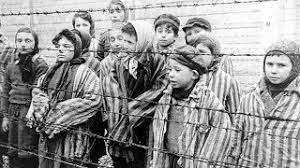The history classes of my school days bring back both good and bad memories. It clearly depended on who was responsible for teaching it in the classroom and how they did it. Looking back, I understood that the study of history was and still is a subject to reflect on and not to memorise.
Bad memories of those subjects that, alien to our reality, where the important thing was to remember names or dates without any context of what happened. Thus, without questioning, we swallowed the reality of slavery, abuses, colonial plundering or theocratic states. I don’t even remember the names of those teachers.
Good, when the teacher was able to awaken our interest, make us think, reflect and understand the consequences of historical events. This is how we were taught about the civil war of 1891, the defeat of President Balmaceda and the subsequent parliamentary era that led to the Chilean Constitution of 1925. Industrialisation, saltpetre, the railway, the workers’ struggle, the territorial expansion of the republic south of the Bío Bío river and so many other events of those 40 years.
To this day I remember that social sciences teacher, Sergio Vera, even though I have never seen him since I graduated from the fourth grade.
The United Nations General Assembly has chosen calendar days to commemorate and/or educate about certain events of interest to humanity. 27 January was chosen to honour the victims of Nazism and, for me, it has once again brought to mind a conversation my wife and I had with our children’s maternal great-grandfather.
The opa (grandfather in German) Sam and his family managed to board the last ship that sailed from the shores of northern Europe with Jewish passengers bound for an unknown destination. Chile was the country that took them in and where he lived most of his life until he decided to return to Germany.
My wife and I, who did not know him, went to visit him to meet his granddaughter, our first daughter. We brought what we thought was a difficult message, which was that we had decided to baptise our daughter and not raise her as a Jew. We received a great lesson from him that day, one that would mark us both for life, when he told us that he was very happy that his descendants would not suffer from anti-Semitism and that we should be alert to racism or other forms of discrimination or oppression.
At that moment we saw reflected in her face the pain of the suffering of millions of people exterminated by the Nazi regime. I will never forget that testimony and that face. History with a human face is the best, and perhaps the only way to ensure that horrific events are never repeated. Hence the importance of memory museums on the subject of the Holocaust and so many other genocides.
Understanding and reflecting on history is part of the formation process. Developing a critical sense shapes values and defines paths in life. A good teacher opens the mind, not indoctrinates; he or she invites dialogue, not closes it. This should be the profound meaning of education.






